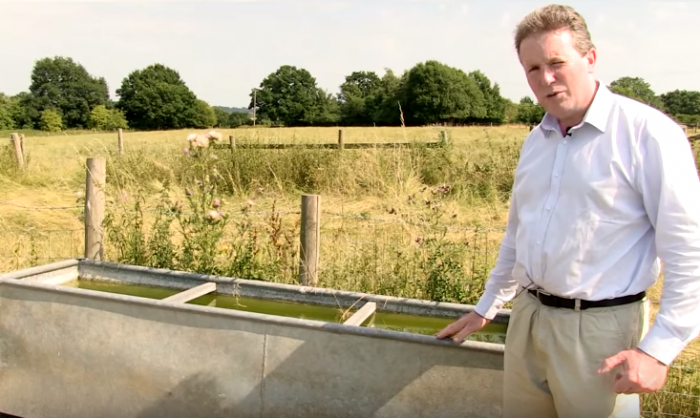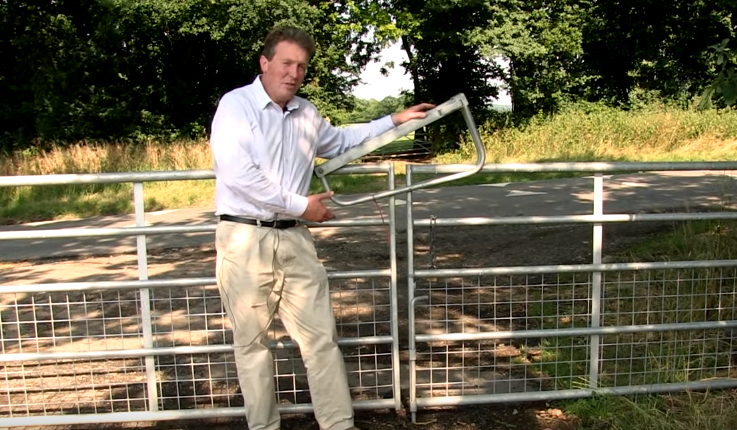Adam Quinney is a beef farmer in Warwickshire. Following a TB breakdown on his farm he has introduced a series of biosecurity measures to help reduce the risk of further outbreaks.
“The whole purpose of what we’ve done on our farm is to try and reduce the interaction between badgers and cattle as much as possible, so if TB is present it doesn’t pass between the two and continue to cause reinfection. It will never be possible to totally stop badgers and cattle mixing, especially in a grazing situation. Most of the steps we’ve taken have been relatively simple but I believe they have helped reduce the risk of TB passing between badgers and our cattle.”
“On the bottom of the doors on our feed stores we’ve put some hard rubber to stop the badgers getting underneath because if the badger got inside any of the feed stores and urinates it could be one way of spreading the disease to our cattle.”
“With our water troughs, we’ve raised the them higher off the ground to make it more difficult for badgers to get access to the water. This means it is much less likely badgers will be able to drink from the troughs and has reduced the possible interaction between cattle and badgers even more.”
“Part of our biosecurity measures is having ‘badger proof’ gates around our farm buildings. These gates have a small gap at the bottom so the badger can’t get underneath and they have wire mesh on them which means the badger can’t get through. Around the perimeter of the farm we’ve also put a mesh fence as well to help stop badgers coming into the buildings.”
“As much as possible we put sheep or graze finishing cattle in fields that are near badger setts, rather than breeding cattle – again, to try and reduce the long-term disease risk to our herd.”
“We’re trying to improve biosecurity and reduce the risk of TB coming on to the farm by using these different methods – whether it’s gates, water troughs, raised feed troughs, or taking steps to keep our cattle away from neighbouring cattle.”
“Having been through an outbreak of TB in our cows, which were born on the farm, we have implemented these relatively simple measures to help reduce the risk of a further breakdown. I know the financial and emotional impact an outbreak can have, so it’s got to be worth trying to reduce the risk of another breakdown.”


